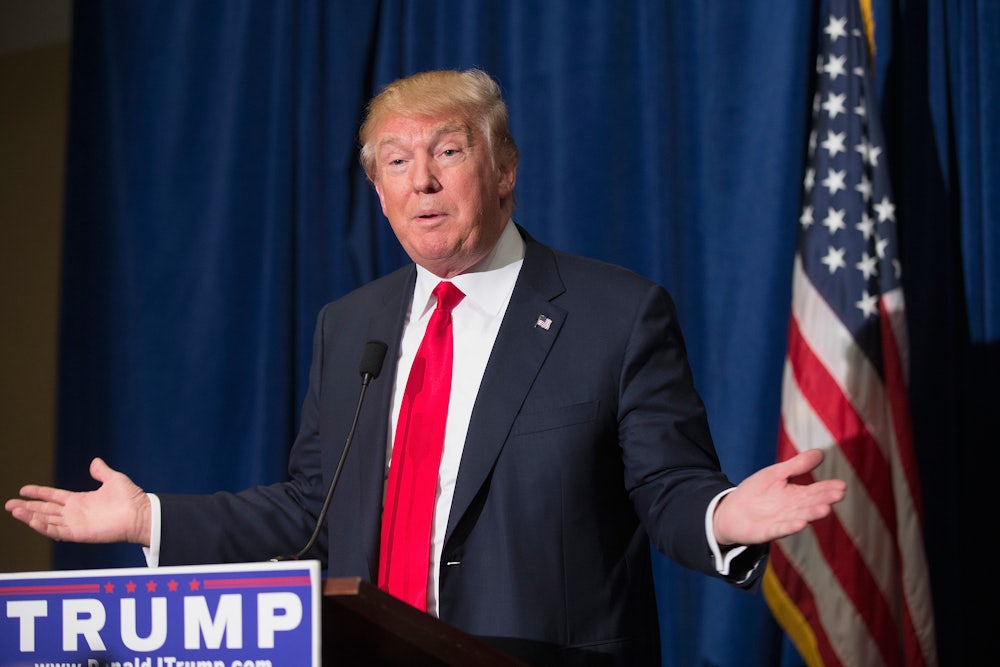On Tuesday, after his landslide victory in New York, members of the media and the political establishment were just beside themselves because Trump called Ted Cruz “Senator Cruz” instead of “Lyin’ Ted.” This was a new Trump, the narrative went, a disciplined Trump who had learned from the roughest stretch of the campaign, and emerged newly presidential. (Never mind, as my colleague Elspeth Reeve pointed out, that the new Trump was the same as the old Trump.)
Twenty-four hours later, Trump was back to calling Cruz “Lyin’ Ted” on the campaign trail. “In the case of Lyin’ Ted Cruz. Lyin’ Ted. Lies. Ooh, he lies. You know Ted. He brings the Bible, holds it high, puts it down, lies,” Trump said in Indianapolis. But the “Trump is becoming more presidential” narrative isn’t going anywhere. In a story published today in The Wall Street Journal, Trump gave the press what it wanted to hear, saying, “The campaign is evolving and transitioning, and so am I ... I’ll be more effective and more disciplined.”
It may very well be that Trump can have it both ways—that as long as he nods in the direction of the establishment every now and again, he can keep saying whatever he wants at his rallies. The response to Trump seems more dependent on context than anything else. Two weeks ago, Trump was reeling after a series of gaffes and Ted Cruz seemed resurgent. After Tuesday’s primary, Cruz’s chance of winning the nomination outright is impossible, so the narrative has shifted back to making sense of Trump as the presumptive nominee. In other words, Trump can have it both ways, as long as he keeps winning—and telling the people in charge that he’ll play their game, too.
